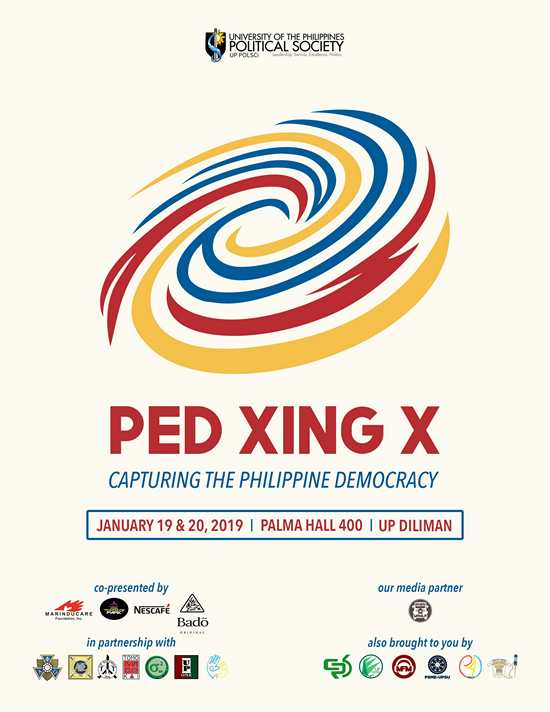Democracy finds its origins in the ecclesia of Ancient Greece. An Athenian invention, the popular assembly consisted of qualifying male citizens that would get to participate in the politics of the city-state. While this may be an outdated vision of democracy, this still novel idea of governance paved the way for a liberal and open tradition of politics. Throughout history, numerous parts of the world have made the monumental decision to shift their political regimes from non-democratic ones to democratic. From the first wave of democratization that occurred for the majority of the 19th century came today’s global powers like the US and the UK. Two subsequent waves would later take place thanks to many historic global events such as the end of the Second World War and the beginning of independence for many formerly colonized states. The Philippine’s place in all this remains to be indeterminate as democracy both struggles and succeeds to place a foothold in our society. Democracy was adopted in the country as an adaptation of the United States’ own regime type. Decades later and this noble concept continues to be challenged by parties unforgiving of what it has to offer. The Marcos Dictatorship’s declaration of Martial Law would be a grueling example of a predatory executive that was unwilling to let go of its mighty position. A system “ruled by the people” would simply be unacceptable for this power-hungry regime. The EDSA Revolution in 1986 would become an awakening force that toppled down the oppressors. This light amidst an increasingly dark period in Philippine history would become a shining example of what democracy means to the Philippine people, especially in this end of an era.
The Cory Administration that took control in this new “EDSA Republic” would, later on, be chided for being unable to redefine democracy as the Revolution had envisioned and for bringing back the old system of trapos and political dynasties. This outdated political culture was what rewarded the elite and disregarded the masses. While the 1987 Constitution would acknowledge principle elements of democracy like the origin of authority from the people and would declare its promise to upholding it as a Republic, attaining democracy seems to still remain a challenge.
In the current Duterte administration, previous elements of our government like our judicial independence are under threat and strongholds like civil society are under pressure from the executive. The ousting of former Chief Justice Sereno, an open critic of Duterte, was a blatant move by the government to undermine the power of its Justice System. More than that, voices emanating from the media, what is said to be the fourth pillar of democracy, are being silenced as is apparent in the President’s threat of a non-renewal of ABS-CBN’s contract and his dismissal of a Rappler reporter from Malacañang for “twisted” reporting. Debates have arisen with the many controversial statements and decisions being put out by the administration on what it really means to govern and what exactly is it that the Philippines needs in order to effectively bring itself to development. Duterte’s own strong man style of leadership competes almost directly with the “limited government” approach to democracy. Scholars and citizens continue to ask what exactly entails a Philippine democracy, and what is the best way to achieve it. It bears questioning whether democracy was even right for the country in the first place as it was an inherently Western concept that was only adopted because of our colonizers. What are said to be strong democracies now have also had the time to build themselves up, centuries at most while the Philippines has had less than one. More than that, the kind of party system and form of government that could work well with democracy should also be put under discussion. With the administration making strong moves towards a Federal-Parliamentary state, the country will have to make great strides to keep up with the possible changes.
These are all discussions on what essentially the country’s political culture entails and how democracy plays a hand into it. With all this, the University of the Philippines Political Society (UP POLSCi), aims to aid in the discussion by running “Ped Xing X: Capturing Philippine Democracy”. Now on its 10th year, this Conference hopes to introduce to the youth the discipline of Political Science by bringing dynamic speakers that could help answer questions on Philippine Democracy. This event also hopes to provide these junior high school students with the skills needed in analyzing socially-relevant issues using different platforms like Speech, Essay-Writing, Quiz Bee, Poster-Making, Photography and Debate competitions. This event is officially sponsored by Badō, Marinducare Foundation, Nescafé and Trampoline Park Philippines, with our official media partner WhenInManila.com and done in partnership with Alpha Phi Omega Eta Chapter, UP Alpha Sigma Fraternity, UP Batangan, UP Organization of Novo Ecijanos, UP Statistical Society, UP Tomo-Kai, UP Volunteers for Children. This Ped Xing Conference is also brought to you by UP Communication Research Society, UP Enkindle, Maroon FM, Philippine Society of Mechanical Engineers and UP Philosophy for Children Society and UP Sigma Beta Sorority Diliman Chapter. Ped Xing X is set to be held on January 19-20, 2018 at PH 400, Palma Hall, University of the Philippines Diliman.





